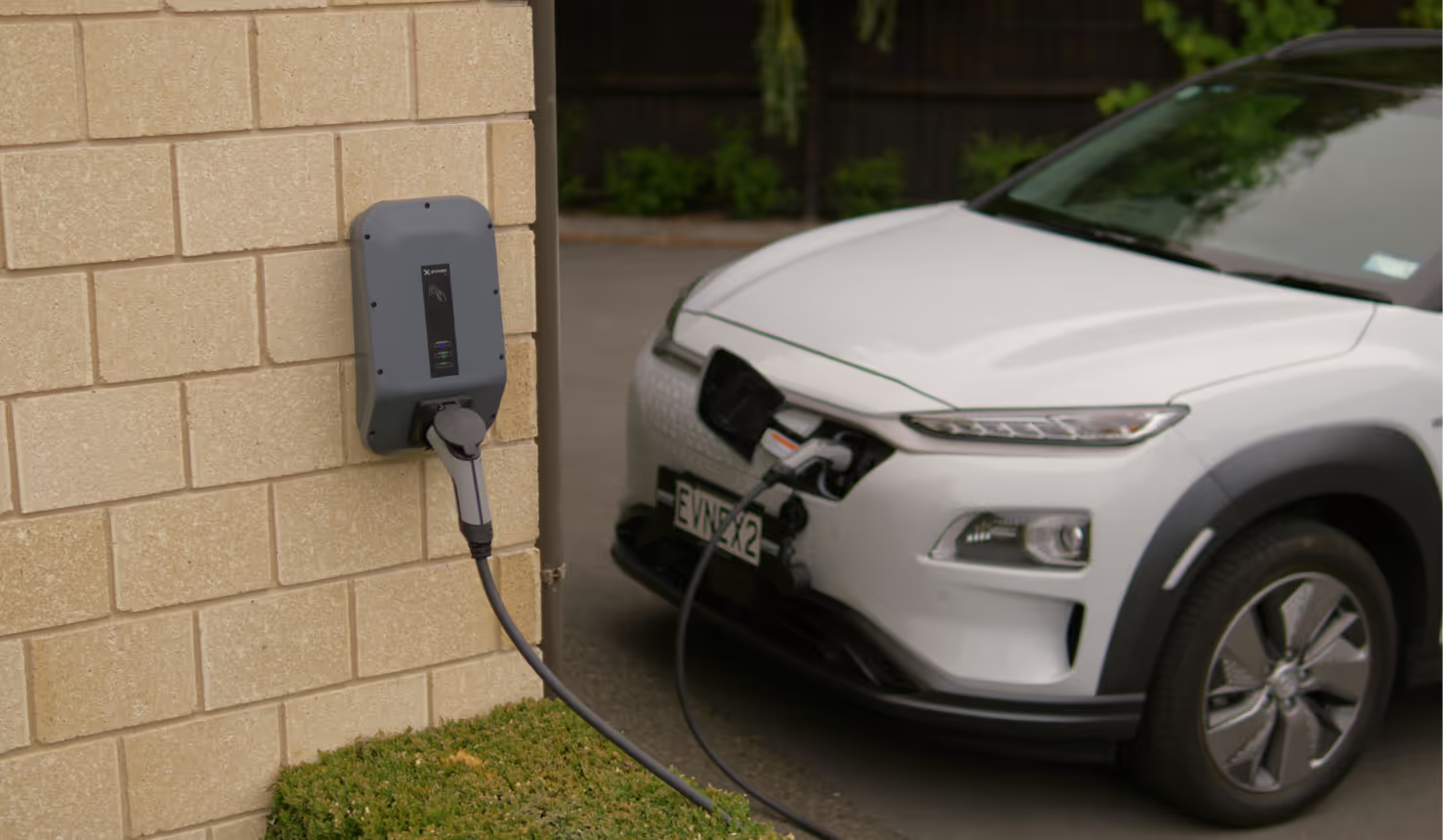7 Types of EVs for Eco-Friendly Driving

Join the community





If you’re thinking about buying an electric car, you're not alone. By 2030, the EPA has a goal for 50% of passenger vehicles and light trucks to be zero-emission vehicles. With EVs (electric vehicles) becoming more affordable, there are more options than ever to suit your needs.
EVs are designed to reduce or eliminate the harmful emissions associated with gas-run, internal combustion engine (ICE) vehicles. Electric Vehicles, including BEVs and PHEVs, are gaining popularity due to their emissions-free operation, while HEVs provide a transition between traditional vehicles and full electrification. FFVs offer versatility in fuel options, while FCEVs and NGVs provide alternatives for reducing greenhouse gas emissions in transportation. Here’s an overview of the most common types of EVs on the market.
Electric Vehicles (EVs)
Electric Vehicles, commonly known as EVs, represent a promising future for environmentally friendly transportation. These vehicles are entirely powered by electricity, relying on an electric motor and a large battery pack to drive their wheels. The primary advantage of EVs is their ability to produce zero tailpipe emissions, making them an eco-conscious choice for consumers. Charging an EV can be done at home using a standard electrical outlet, at dedicated charging stations, or through fast-charging networks.
Battery Electric Vehicles (BEVs)
Battery Electric Vehicles, or BEVs, are a subset of EVs that exclusively use batteries for power. Unlike some other electric vehicles, BEVs do not feature an internal combustion engine (ICE). This means that BEVs produce no emissions during operation. To keep them running, BEVs need to be plugged in and recharged, typically at home or at public charging stations.
Plug-in Hybrid Electric Vehicles (PHEVs)
Plug-in Hybrid Electric Vehicles, often referred to as PHEVs, combine the benefits of electric power with the flexibility of a gasoline engine. PHEVs feature an electric motor and a gasoline engine, allowing them to operate using electricity from their batteries or switch to the gasoline engine when the battery is depleted. This dual power source makes PHEVs a practical choice for those who occasionally need the extended range provided by gasoline.
Hybrid Electric Vehicles (HEVs)
Hybrid Electric Vehicles, or HEVs, incorporate both an electric motor and an internal combustion engine. They use regenerative braking to recharge their smaller batteries. HEVs are renowned for their fuel efficiency and reduced emissions compared to traditional ICE vehicles. However, they still rely on gasoline for power.
Flexible Fuel Vehicles (FFVs)
Flexible Fuel Vehicles, abbreviated as FFVs, are designed to run on various fuels, with the most common combination being gasoline and ethanol (E85). These vehicles come equipped with engines capable of handling different fuel mixtures. FFVs offer environmental benefits when using biofuels, such as E85, which can help reduce greenhouse gas emissions.
Fuel Cell Electric Vehicles (FCEVs)
Fuel Cell Electric Vehicles, or FCEVs, are powered by hydrogen gas, which reacts in a fuel cell to produce electricity for propulsion. FCEVs emit only water vapor as a byproduct, making them a zero-emission option. However, they do require access to hydrogen refueling stations, which can be limited in some regions.
Natural Gas Vehicles (NGVs)
Natural Gas Vehicles, known as NGVs, rely on compressed natural gas (CNG) or liquefied natural gas (LNG) as their primary fuel source. These vehicles emit fewer harmful emissions compared to gasoline or diesel vehicles, making them a cleaner alternative for transportation. NGVs are commonly used in commercial fleets and public transportation systems.
Reminder: One of the most sustainable ways to travel is via public transit. Public transit vehicles take up less space per passenger and many transit vehicles are going electric!












